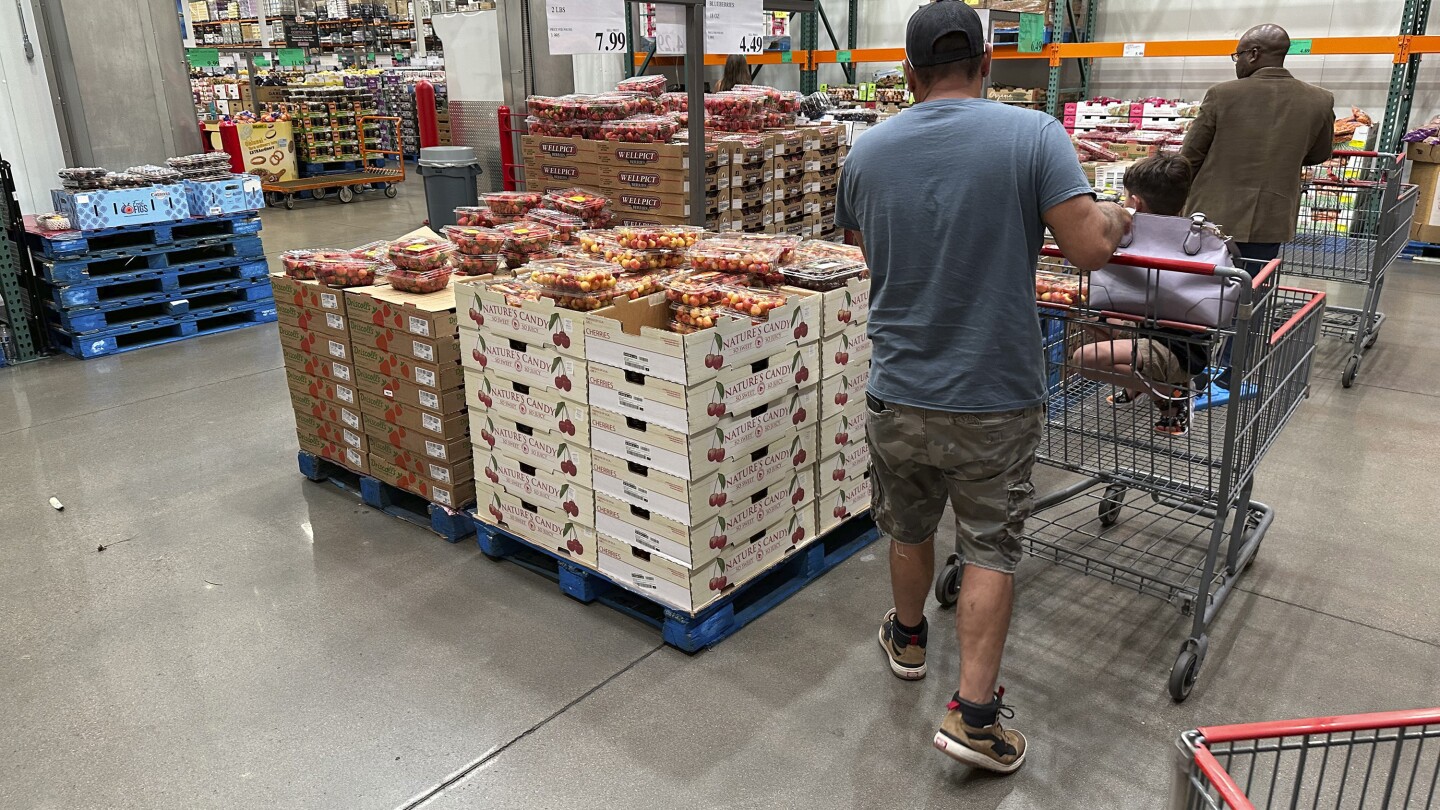Signs that inflation pressures in the United States are steadily easing emerged Friday in reports that consumer prices rose in June at their slowest pace in more than two years and that wage growth cooled last quarter.
So great how it cools wages when people need wage increases most. It’s like every time we need to get ahead a little something goes nah… it’s lower class for you forever.
a little something goes nah… it’s lower class for you forever.
That something has a name and it’s called “The Fed”.
Higher unemployment and lower wages is a stated goal of theirs.
Why would they want that?
They don’t, the Fed is sort of the hammer to break glass in case of emergencies, but the legislature has refused to do anything productive or helpful for citizens.
For years the fed just printed money to stave off an economic collapse. The legislative branch bought stock instead of passing laws and regulations.
The Fed isn’t our government, but unfortunately our government isn’t our government anymore either.
Because it makes people who are on the margins more desperate for work, which lowers wages or keeps them from rising as quickly as they otherwise would have.
People have given good responses here, but the other, important reason is because when people in the lower socioeconomic strata make more money, they’re willing to pay more for stuff instead of invest that money, meaning the prices for goods rises, which affects the lower classes most. If broad income rises, the price of goods rises. Are you making more “per hour” when everything costs more and you’re still spending the same percent of your income on food and housing? And if your income goes up, and so do prices, people that didn’t get that income raise get fucked hardest. That’s basically what “runaway inflation” IS: it’s when an economy starts increasing wages to satisfy cost, and cost goes to satisfy demand, so wages go up to satisfy cost and cost goes up to satisfy demand.
no one wants lower wages, but wage increases lead to businesses increasing their prices.
supply shocks aside, there is a negative correlation between inflation and unemployment for a host of complex reasons. so there’s ultimately a trade-off to pick.
unfortunately, the issue is that given businesses also function from the idea that there is such a trade-off, supposing we announce we want to lower unemployment, they raise their prices in anticipation.
it’s a sad system
its also stuck in a real binary type of thinking, assuming things like regulating businesses and redistributing the wealth are impossible. so like no shit when you write the rules around keeping money with the rich, the rich keep the money😲
Mine as well say hey do you wanna burn alive or drown? Sorry its the only trade off we can offer :/
deleted by creator
The point of the interest rate hikes was to take money out of circulation to reduce inflation. A side effect of that is cooling wage increases.
Ideally, we would handle inflation by raising taxes. But good luck passing that without a Senate that has a supermajority of non-Republicans
deleted by creator
link?
He doesn’t have one. Instead he’s just downvoting anyone that disagrees with his comment.
No, he did not.
No. While that may seem like the effect, he’s been very keen to position himself as actually trying to keep runaway inflation from punishing the lower class. It devalues capital, but do you think the wealthy are affected by the cost of groceries?
The point of tempering wage growth is to temper costs of important consumables and purchases: food, housing, and transportation.
The prices of goods rises with the available cash of people that actually spend their paychecks. Investment is not how most people use their money–they buy food, pay rent, purchase gas, etc. If there is more money available from wage workers that spend most of their money on consumables and basic living expenses, the prices all of those things go up.
Grocery stores, gas stations, and most large corporations (which includes farms) are staged and staffed by people that “spend” the majority of their money. Which means when the cost of stuff goes up, you have to pay them more so they can continue to be able to get these basic consumables. And that means paying them more, so the cost of bringing food to your grocery store and fuel to your gas station goes up. So you need more money from your job to shoulder that burden… but, then, so do they. So you’re paid more, and they’re paid more, which costs more, and it doesn’t end without economic intervention. And that’s what inflation is. There are reasonable arguments for keeping wages AND COSTS LOW, but they involve wage workers voting at a rate higher that 25%, because they involve adjudication of our tax targets that aren’t completely in favor of the very wealthy.
While wages slow, corporate profits hit new all time highs!
The system is working as designed. Making the rich richer and the poor poorer.
No, it’s making the rich richer and the poor not desperately angry. Nothing makes rich assholes more concerned than all the people kept at just above desperation starting to get actually desperate and angry.
The key to a highly unequal distribution of wealth, resources, and power is making sure that those with the least–from whom you’re extracting the wealth, resources, and power–find it more difficult and inconvenient to change the system than just accept their mediocre lives.
So far, so good.





